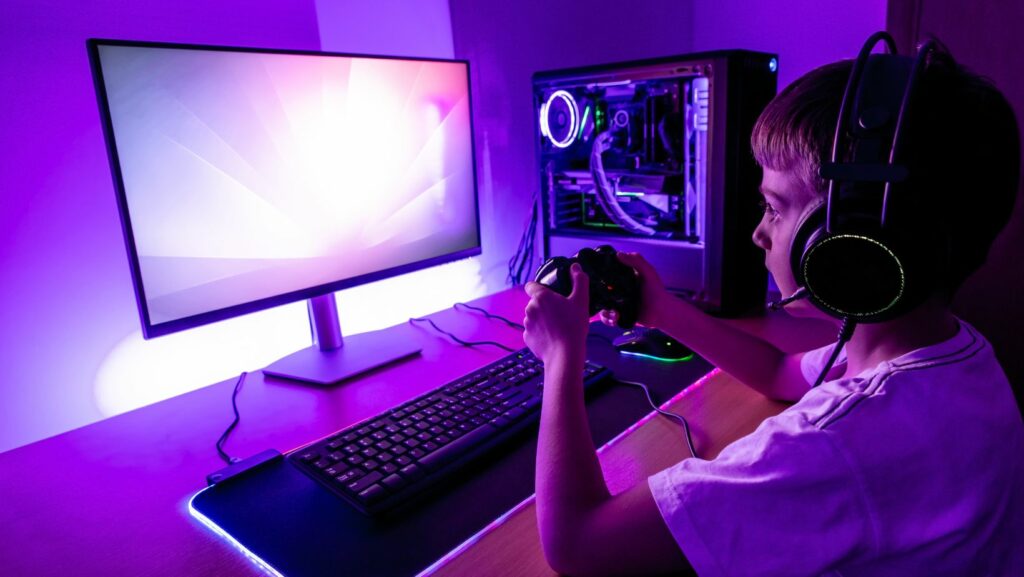Phone:
(701)814-6992
Physical address:
6296 Donnelly Plaza
Ratkeville, Bahamas.

As a mobile gaming enthusiast, I’ve been closely following the recent developments in the industry that could reshape how we access and download our favorite games. The mobile gaming landscape is on the verge of a significant transformation, with talks of a new gaming store that could challenge the dominance of established platforms.
I’m particularly intrigued by the potential impact this rival store could have on developers and gamers alike. With current platforms taking up to 30% commission on game sales, a new competitor could disrupt the market by offering more favorable terms. This shift wouldn’t just benefit game creators – it could lead to more competitive pricing and innovative features for players like me and you.
The mobile gaming marketplace demonstrates significant shifts in competitive dynamics since 2020. Leading platforms face mounting pressure from emerging alternatives that offer reduced commission rates below the traditional 30% benchmark.
Key market changes include:
Current market statistics reveal evolving dynamics:
| Platform | Market Share | Commission Rate | Developer Satisfaction |
|---|---|---|---|
| App Store | 65% | 30% | 72% |
| Play Store | 30% | 30% | 68% |
| Alternative Stores | 5% | 12-15% | 84% |
Three critical factors drive this competitive transformation:
My analysis indicates that emerging platforms leverage these advantages to establish market presence effectively. The mobile gaming ecosystem experiences unprecedented transformation as new entrants challenge established distribution channels with innovative approaches to game delivery, monetization and user engagement.
The mobile gaming market features established digital storefronts with distinct market positions operating under different business models. Each platform maintains unique developer relationships infrastructure capabilities that shape the competitive landscape.
The Apple App Store commands a 65% revenue share of the mobile gaming market through its exclusive iOS distribution channel. Its ecosystem generates $85.1 billion in annual gaming revenue with 1 million exclusive gaming titles. Apple’s strict quality guidelines curated app review process closed platform approach create premium user experiences resulting in 2.2x higher revenue per user compared to Android. The platform’s integration with Apple’s hardware ecosystem including features like Metal graphics API Game Center social platform enhances developer capabilities.
| Apple App Store Metrics | Values |
|---|---|
| Market Share | 65% |
| Annual Gaming Revenue | $85.1B |
| Active Gaming Apps | 1M |
| Commission Rate | 30% |
| Average Revenue Per User | $130 |
Google Play Store holds 30% market share as the primary Android gaming marketplace serving 2.5 billion active devices. The platform processes $47.9 billion in annual gaming transactions across 477,000 gaming applications. Google’s developer-friendly approach includes flexible payment systems streamlined publishing processes advanced analytics tools. The Play Store’s integration with Android gaming services Firebase backend solutions increases developer productivity reduces time-to-market for new titles.
| Google Play Metrics | Values |
|---|---|
| Market Share | 30% |
| Annual Gaming Revenue | $47.9B |
| Active Gaming Apps | 477K |
| Commission Rate | 30% |
| Active Devices | 2.5B |

The mobile gaming marketplace is experiencing disruption from innovative platforms that offer alternative distribution channels. These new entrants are reshaping market dynamics through competitive commission structures and enhanced developer services.
Several emerging platforms are gaining market traction:
| Platform | Monthly Active Users | Commission Rate |
|---|---|---|
| Epic Games Store | 58M | 12% |
| Samsung Galaxy Store | 460M | 15% |
| Huawei AppGallery | 530M | 15% |
| TapTap | 25M | 0-15% |
| Revenue Model | Commission Range | Additional Benefits |
|---|---|---|
| Standard Rate | 12-15% | Cross-platform tools |
| Subscription Games | 10-12% | Analytics integration |
| Exclusive Launches | 5-8% | Marketing support |
| F2P Games | 0-10% | In-game currency options |
Mobile gaming stores face complex technical barriers and regulatory requirements when entering established markets. These challenges impact platform development, user experience and market compliance.
Cross-platform functionality presents significant technical hurdles for emerging gaming stores. Android fragmentation across 15+ major versions requires extensive compatibility testing with 2,000+ device configurations. Optimization challenges include:
| Compliance Area | Required Investment | Implementation Time |
|---|---|---|
| Platform Security | $2-5 million | 6-8 months |
| Payment Systems | $1-3 million | 4-6 months |
| Data Protection | $500K-1 million | 3-4 months |
| Content Moderation | $250-500K | 2-3 months |
The emergence of rival gaming stores creates transformative opportunities for developers and publishers in the mobile gaming ecosystem. These changes affect revenue potential and market reach significantly.
Alternative gaming stores introduce diverse revenue models that enhance developer earnings. The reduced commission rates of 12-15% from new platforms, compared to the traditional 30%, increase profit margins by up to 18%. Key monetization advantages include:
| Platform Type | Commission Rate | Market Coverage | Developer Tools |
|---|---|---|---|
| Traditional Stores | 30% | Global | 25+ |
| Alternative Stores | 12-15% | Regional | 15+ |
| Direct Distribution | 5-10% | Targeted | 8+ |
Alternative mobile gaming marketplaces are transforming the distribution landscape through innovative features, competitive commission structures, and enhanced developer services.
The mobile gaming marketplace shows significant growth potential through 2025:
| Metric | Current Value | 2025 Projection |
|---|---|---|
| Global Market Size | $98.2B | $157.7B |
| Alternative Stores Market Share | 5% | 12% |
| Average Commission Rate | 25% | 18% |
| Monthly Active Users | 2.8B | 3.5B |
Mobile gaming marketplaces are integrating advanced technologies to enhance user engagement:
The marketplace ecosystem is adopting new revenue approaches:
New platforms are prioritizing developer tools:
I’ve seen how the mobile gaming marketplace is undergoing a remarkable transformation. The emergence of rival gaming stores presents exciting opportunities for both developers and players with reduced commission rates and innovative features.
The shift from traditional platforms to alternative stores signals a new era in mobile gaming distribution. As these new platforms gain momentum I expect to see even more competitive pricing cross-platform capabilities and developer-friendly policies.
With projected market growth and technological advancements on the horizon the future looks promising. I’m confident that this evolving landscape will continue to benefit the entire mobile gaming ecosystem creating a more diverse and accessible market for everyone involved.